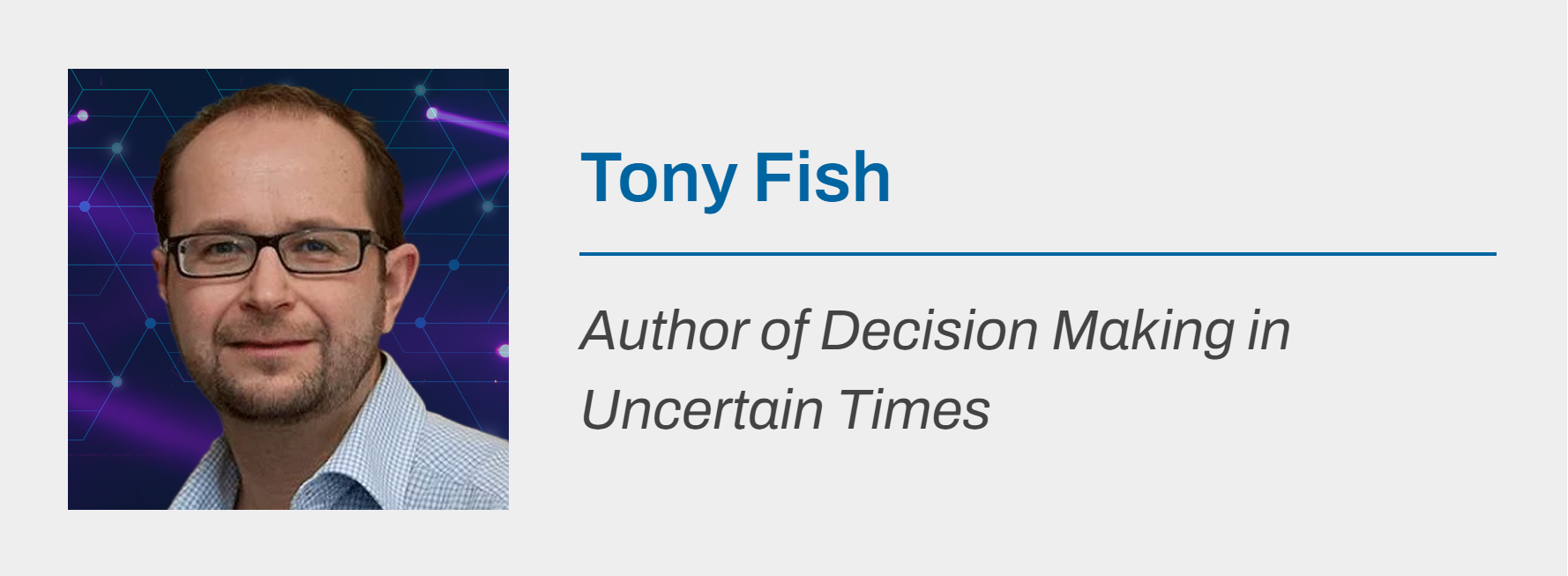Insights from Tony Fish
In a recent interview previewing the upcoming Data Jam event, Jeremy Burgess sat down with Tony Fish, one of the keynote speakers known for his unconventional approach to data challenges in the insurance industry. Described as a "maverick," Tony shares his eclectic experience from across various sectors, all centred around the effective use of data. His conversation with Jeremy offers thought-provoking insights into the deeper challenges businesses face when leveraging data for decision-making.
Moving beyond data quantity: the importance of asking the right questions
Tony began by addressing a widespread belief in business circles: the notion that more data naturally leads to better decisions. This "data-first" mindset, Tony argues, often fails to consider the more fundamental issue of the questions being asked. According to him, businesses tend to stick with familiar questions without examining whether these questions are still relevant or insightful. Data, in itself, is historical and merely a reflection of past events. Thus, companies need to ask forward-looking questions that challenge their assumptions and expand their perspectives.
Tony aims to provide frameworks during his talk at Data Jam that will help companies explore questions they didn’t even realise they needed to ask. This ability to identify and refine critical questions is what he believes truly drives smarter decisions.
The over-reliance on financial metrics
During their conversation, Jeremy brought up the common tendency for businesses to base their discussions around financial numbers. Tony agreed, emphasizing how financial metrics often take centre stage in meetings, with organisations assuming these numbers are both accurate and meaningful. However, he pointed out that such metrics can be misleading. Different accounting principles can fundamentally alter reported numbers, but businesses rarely consider these nuances when framing discussions.
Focusing narrowly on financial data, Tony cautions, can compress the time available to discuss other crucial aspects of the business. Consequently, the lack of variety in questions hinders deeper understanding and can result in overlooking significant issues that do not fit neatly into traditional metrics.

Incentives and unintended consequences
One of the recurring themes Tony discussed was the impact of incentives on business decisions. He used the example of the traffic light system—red, yellow, and green—as an awareness tool in organisations. While employees are typically incentivised to turn all metrics "green," this focus on achieving green status can overshadow the bigger picture. Achieving a specific target in one area often comes at the expense of another, but these compromises are rarely acknowledged or examined.
Tony’s central message, that he will explore further at the Data Jam event, is that incentives drive behaviour, and if those incentives push towards achieving flawed or narrow metrics, they can lead to unintended consequences. To counteract this, Tony encourages organisations to ask not only whether they are hitting their targets but also to question what sacrifices or compromises are being made in the process.
Understanding data ontology
One of the most technically insightful points in the conversation was Tony’s focus on data ontology—essentially the structural organisation of data. He explained that every organisation operates with its own ontology, which defines how data is categorised and labelled. This structure determines what types of questions can be asked and what insights can be gleaned.
Tony warned of the risks companies face when they attempt to merge datasets with different ontologies. Misalignment can lead to "phantom users" or misleading insights due to conflicting data structures. He stressed that organisations often blame "bad data" when, in reality, the issue lies in not understanding or aligning their ontologies.

Leadership, culture, and philosophy to deliver change and innovation
Tony also delved into the role of leadership in shaping a data-driven culture. He noted that leaders must create an environment where challenging questions are encouraged. In many organisations, people are discouraged from questioning established practices, especially when decisions are guided by edicts or mandates. This stifles innovation and prevents organisations from exploring new perspectives.
Tony’s approach extends beyond practical strategies to a more philosophical view of data. He described how mathematics, computing, and even financial principles are essentially rooted in philosophy. Adopting a philosophical mindset, he suggested, involves holding multiple ideas of equal value and searching for which ones align best with the organisation’s goals. This openness allows for a deeper exploration of the assumptions and motivations driving decisions.
Asking better questions
Innovation, according to Tony, hinges on the ability to ask better questions. He cautioned against the tendency to rely on experts who may present overly confident narratives about complex topics like AI and automation. Instead, organisations should be willing to challenge prevailing narratives and assumptions, fostering a culture where every team member feels empowered to contribute new perspectives.
For Tony, the connection between questioning and innovation is clear: the more an organisation encourages diverse questioning, the more it opens itself up to innovative solutions.

Embracing complexity in a data-driven world
Tony’s concluding remarks touched on the growing complexity of data and the increasing demands on organisations to navigate it effectively. He emphasised the need for leaders to build diverse teams with a wide range of skills and perspectives, including neurodiversity. These teams should be empowered to ask not just more questions, but better questions.
As businesses continue to operate in a fast-moving, data-driven world, Tony’s insights serve as a reminder that data is not an end in itself. Instead, organisations must be willing to rethink their assumptions, challenge their metrics, and embrace the complexity that comes with deeper questioning.
Tony will be shedding more light on the need for businesses to shift their focus from simply gathering more data to refining the questions they ask and the structures they rely on at the Data Jam on November 28th. His keynote presentation will encourage you to embrace this approach so you can unlock more meaningful insights and drive lasting innovation.
Sign Up to TINsights
Where we share our latest blogs, industry reports and insights



